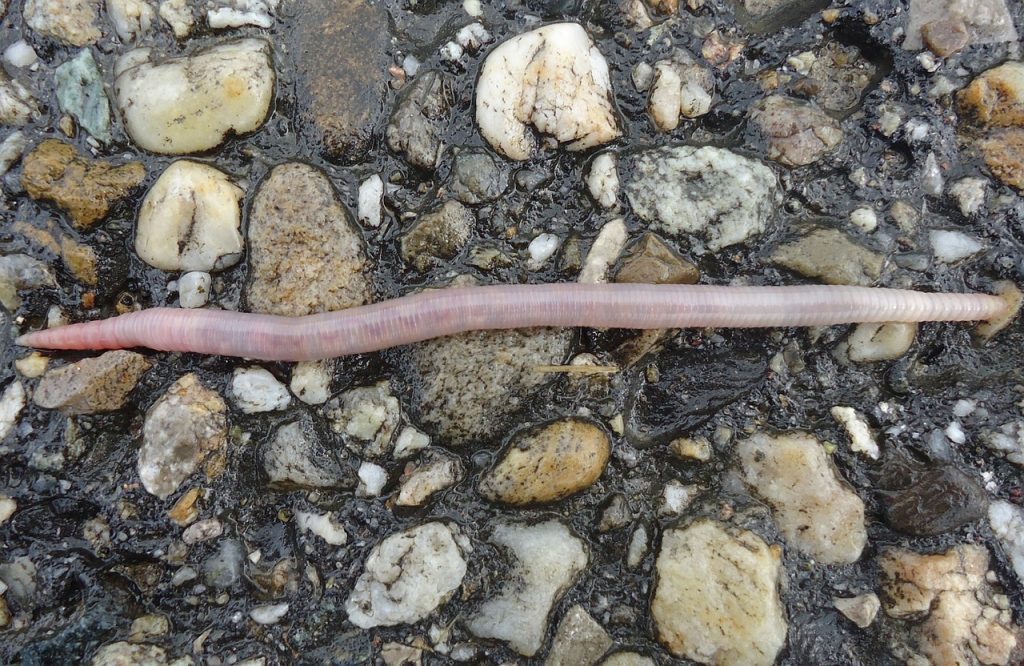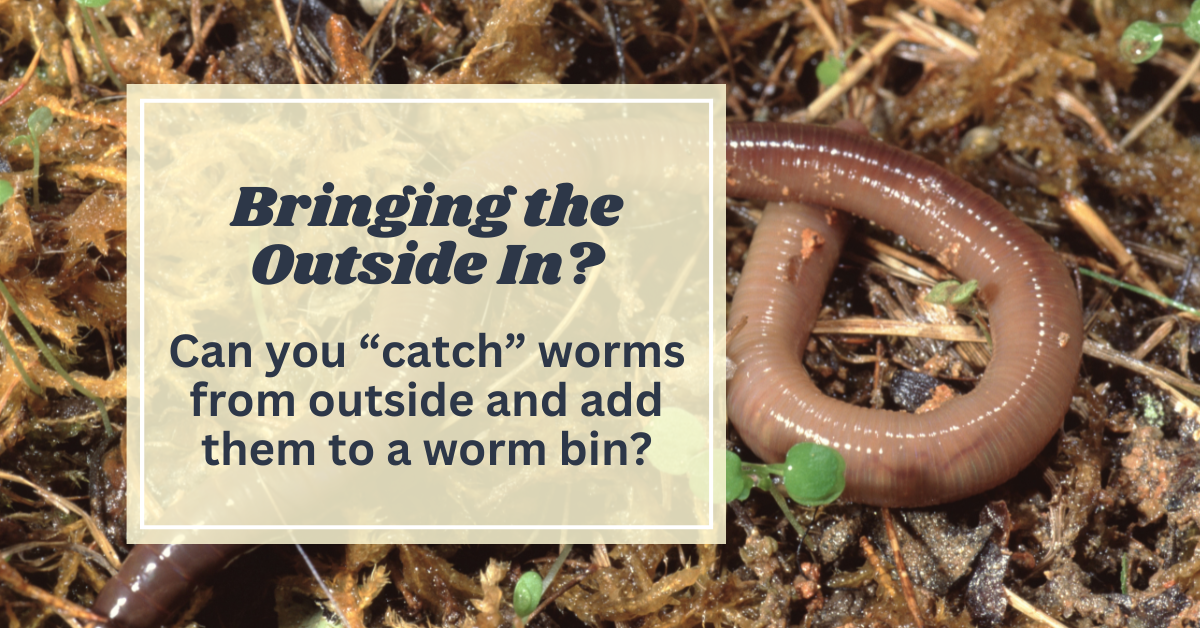Can I Add Worms From Outside to My Worm Bin?
Please note that this post may contain affiliate links, which means we may earn a commission if you make a purchase through our links, at no extra cost to you. Learn more.
When considering adding worms to your indoor worm bin, many people wonder if they can simply collect worms from their garden or local soil.
While this may seem like an easy solution, especially for those that frequently encounter worms while gardening, it’s important to understand that not all worms are suitable for vermicomposting.
The Importance of Using the Correct Worm Species
Why Not Just Use Outdoor Worms?
While it might seem tempting to find worms outside and add them to your worm bin, this practice is generally not advisable. The worms you find outdoors, such as common earthworms, are not always well-suited for indoor vermicomposting systems.
Only seven species of earthworms have been identified by scientists as being particularily well-suited for vermicomposting:
- Red wiggler (Eisenia fetida)
- Red tiger (Eisenia andrei)
- European nightcrawler (Lumbricus rubellus)
- Red earthworm (Lumbricus terrestris)
- Tropical blue worm (Perionyx excavatus)
- African nightcrawler (Eudrilus eugeniae)
- Alabama or Georgia jumper (Amynthas agrestis)
From the list above, you’ll likely find that red wigglers (Eisenia fetida) and African nightcrawlers (Eudrilus eugeniae) are the most commonly used in small-scale vermicomposting set-ups, with red wigglers likely being the most popular for setups of all sizes.
Most of the earthworms you find outdoors are not adapted to the controlled environment of a worm bin, where conditions like temperature, moisture, and food availability are optimized for specific species.
Additionally, outdoor worms may carry pathogens, pests, or other contaminants that could harm your indoor ecosystem.
The Benefits of Using Red Wigglers
Red wigglers are extremely popular for indoor vermicomposting due to their unique characteristics. These worms thrive in organic matter, breaking it down efficiently while generating nutrient-rich castings. Here are some benefits of using red wigglers in your worm bin:
- Rapid Decomposition: Red wigglers have a voracious appetite for decomposing organic material. They can consume their weight in food daily, making them highly efficient at breaking down kitchen scraps.
- High Reproductive Rate: These worms reproduce quickly, doubling their population in just a few months under optimal conditions. This rapid breeding helps maintain a healthy worm population in your bin.
- Adaptability: Red wigglers are well-suited for various environments, including the confines of a worm bin. They thrive in a range of temperatures and moisture levels, making them ideal for indoor composting.
- Minimal Odor: Unlike some other worm species, red wigglers produce minimal odor when kept in a well-maintained bin, making them a pleasant addition to your home.
By using the right species of worms, you can optimize your worm bin’s efficiency and effectiveness in composting organic waste.
Why Not Use Local Worms in Your Bin?
While it may be tempting to simply find worms in your garden or yard and add them to your worm bin, this is not recommended for several reasons:
- Species Suitability: Most wild worms, such as common earthworms (Lumbricus terrestris), are not well-suited for vermicomposting. They tend to burrow deep into the soil rather than thrive in a composting environment. This behavior makes them less effective at breaking down organic materials in a confined space.
- Environmental Impact: Introducing non-native or wild species to your composting system can disrupt the local ecosystem. Wild worms might compete with your red wigglers for food and space, potentially leading to imbalances.
- Parasites and Diseases: Wild worms may carry diseases or parasites that could harm your indoor worm bin. By using commercially available red wigglers, you can ensure that you are starting with healthy, disease-free stock.
- Temperature and Moisture Preferences: Wild worms may not thrive in the conditions of a worm bin, which typically has different moisture and temperature levels than outdoor environments.

For the best results in your vermicomposting efforts, stick to the species that are specifically recommended for this purpose, like red wigglers.
Can I Release My Vermicomposting Worms Outside?
While it’s pretty clear that bringing wild worms into your composting setup is a bad idea, the opposite—releasing your vermicomposting worms into the wild—is also probably a bad idea.
Worms that are specifically bred for vermicomposting, like red wigglers (Eisenia fetida) and red tigers (Eisenia andrei), are not native to many environments. Releasing them into the wild can disrupt local ecosystems. These worms can outcompete native species for resources, potentially leading to a decline in local worm populations and affecting the soil health of the area.
Or, they simply won’t be suited to the different conditions in the environments and will simply die.
If you find yourself with surplus worms or a bin that needs to be cleaned out, it’s best to either share them with other vermicomposters in your community. Try posting on local gardening groups on Facebook or offering free worms on sites like Kijiji – it’s likely someone will jump on the opportunity to take them off your hands!
Please think carefully about the impact of introducing or removing worms from your environment. Maintaining the balance of local ecosystems is just as important as nurturing your composting efforts.
Conclusion
While it might be tempting to gather worms from your backyard for your worm bin, it’s generally not a good idea.
The risks of introducing pests, diseases, and non-native species outweigh the potential benefits. Instead, focus on purchasing well-suited composting worms from reputable sources.
This approach will ensure a healthy and productive worm bin, allowing you to enjoy the many benefits of vermicomposting without the added complications of wild-caught worms.









